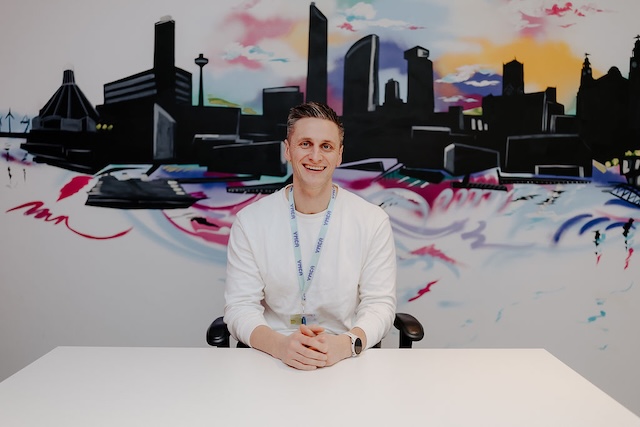Meet the YMCA Together Team – Lewis Marston
Meet Lewis Marston, Director of Psychological Services at YMCA Together
Lewis Marston – Director of Psychological Services / Clinical Psychologist.

What does your role involve?
My role involves all things psychology and relational thinking. We have a small team of Assistant Psychologists and a Head of Psychology who work across the various services. It’s my job to make sure that they deliver well into these services and support all teams to think psychologically and relationally.
I see my role as a bolt-on to all the services we provide. If a team requires some extra support, if there are training needs, or if we need to care plan together, then I will work alongside teams to consider these parts.
What qualities are essential to your work at YMCA Together?
The ability to make people trust and feel safe around you is essential. This goes for people I might work therapeutically with or when working with teams. In order to do this, I always tell people two things:
1) I will do what I can to help them in the pursuit of this
2) I need to be entirely honest with them at all times.
Once we have this, we develop much more meaningful and productive relationships with one another.
Describe your typical working day.
I’m often bouncing between various services based on need. A typical day might start with reflective practice in one team and then running a supervision group with another team. I could be delivering training at another location. In the gaps, I am currently focused on developing our training material to deliver to our various teams and external partners.
What’s the most rewarding element of your work?
I love seeing the lightbulb moment for people. When something clicks in place or suddenly makes a lot of sense to them. We often work in task mode, and it is a real privilege as a psychologist to help people pause and slow down – this is where the best thinking can happen.
Describe your most memorable moment at YMCA Together.
In my early weeks of joining, I was able to join an interpersonal psychotherapy group for those in recovery. Seeing people going through tough things and supporting people going through tough things was moving. I remember feeling very connected to the camaraderie in the room. It was a great example of how a community can delicately hold each other.
How do you relax outside of work?
I swim, bike and run a lot! I do my best thinking when I’m exercising. If I ever need clarity on something I’m feeling quite stuck on, I’ll go out and exercise and figure it out by the time I get back.
If you could change one thing about society to improve the lives of the people you work alongside, what would it be?
I would go straight to the roots and look at how we break the cycles of generational trauma. A lot of those we work alongside have lived in trauma from such a young age and have never known a world that isn’t unpredictable and terrifying.
Supporting young people at risk of being exposed to such experiences would have a significant impact on their well-being and functioning as they enter adulthood.
